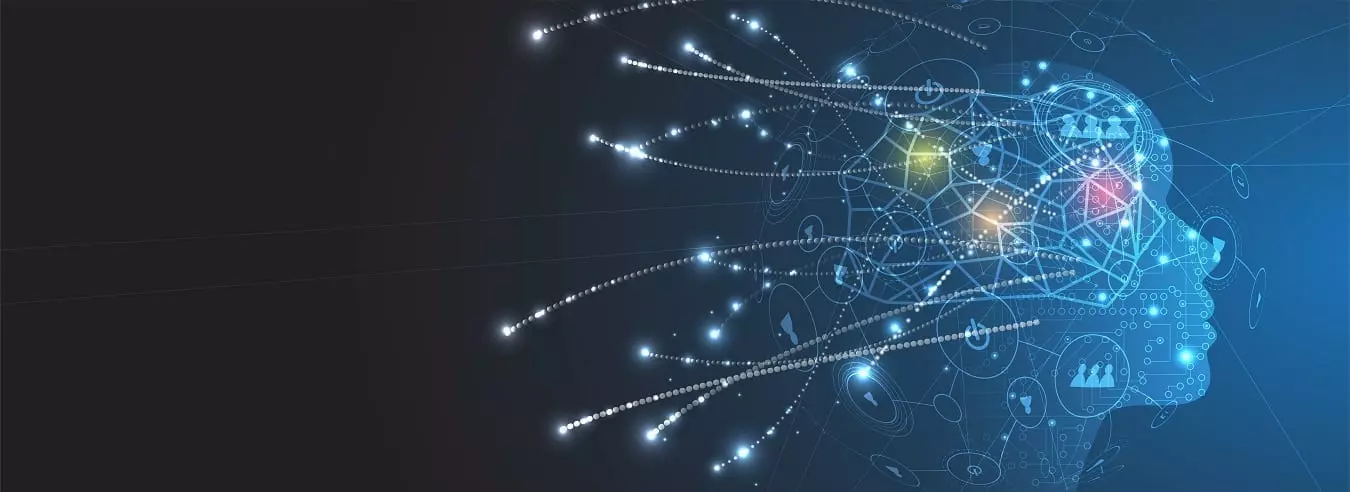
One of the most exciting technologies in the history of our species has to be that of artificial intelligence. The sheer, almost limitless potential for AI, machine learning and deep learning in almost every aspect of our world means that it is vitally important for us to learn as much as we can about AI and how it could affect us all in both the short and long term. In this series of articles, we’ll be looking at artificial intelligence, machine learning and deep learning and how these technologies could affect us both now and in the not-too-distant future.
The concept of non-human or artificial intelligence (AI) has been around for many decades and over the years has found itself the centerpiece of many works of scientific research, science fiction and Hollywood films and a plethora of sci-fi novels spanning as far back as the 1950’s.
Today, however, true artificial general intelligence is still some way off the standard of which many Hollywood directors and science fiction authors have had us imagine.
Although this doesn’t mean we aren’t all seeing the start of what could very well become the start of an AI revolution that could have profound effects on nearly every aspect of our lives.
In this article, we’ll be looking at how artificial intelligence is impacting the world today and the various different roles it plays within our home and business lives as well as how it could help boost the economy and keep us safer. So, let’s jump straight in.
Home Life
While much of the praise and discussion surrounding artificial intelligence tends to focus on its potential for business, industry and security, it is actually more likely that some of the first experiences with AI that many people will have come in the form of interactions with virtual assistants like Amazon’s Alexa, Apple’s Siri or Microsoft’s Cortana who have all become very popular.
Alongside the popularity of virtual assistants, the rise of the Internet of Things (IoT) and smart devices is also influencing the integration of AI into people’s homes.
It has been estimated that, by the early 2020’s, there will be tens of billions of connected IoT and smart devices, many of which will be found around the home and need to be managed.
Many of these devices themselves such as certain smartphones are now coming equipped with their own machine learning software that enables them to bring the power of AI into the palms of our hands while also helping to enables other cutting-edge technologies such as edge computing, mesh networks, and autonomous vehicles.
Business and Industry
With more and more of our business and industry becoming both digital and virtual, it makes sense that artificial intelligence would be so well placed to thrive in certain commercial or industrial applications.
As we’ve already begun to see, AI technologies are allowing enhancements and improvements to be made to various different business operations, with cybersecurity, automation, and the utilization of big data among the most promising.
These are but just a few examples, however, of the potentially millions of applications AI could have within either a commercial or industrial setting.
Machine vision for distribution and packaging enterprises is another area in which artificial intelligence is transforming the traditional landscape, alongside the use of data collected by the millions of IoT and smart devices around the world that are now helping to grow areas such as precision agriculture and digital signage within the retail sector.
Healthcare
Advances in healthcare and medicines are helping us to live longer, healthier lives, however, one of the biggest leaps currently being made is the use of artificial intelligence and machine learning technologies in an array of medical diagnostic and administrative functions.
As well as apply their computing power to various challenges, AI technologies could play a part in making doctors and nurses more productive. There are in existence right now many algorithms that are learning how better to detect all kinds of cancers and diseases and work out the best possible treatments for them depending on who it is that is currently sick.
In order to further improve upon healthcare efforts worldwide, artificial intelligence is being utilized to process and interpret a huge ocean of health and medical data. It is also hoped that soon it will be able to suggest treatments and support doctors in their analysis and prescribing of patients.
Security
Artificial intelligence is, in a sense, both powering and powered by the Internet of Things when it comes to security. In surveillance, cameras that are equipped with video analytics software can utilize AI technologies to better understand and interpret the data they are collecting in the footage they capture, thus helping to improve upon the overall security they provide.
Cybersecurity is another area in which AI technologies are being utilized in order to keep us safe and our data and finances secure.
In order to better predict the behavior of malicious hackers or the vast selection of malware, worms, or botnets at their disposal, artificial intelligence and machine learning technologies are being taught what they need to know in order to then learn by themselves through experience.
As the threats we face evolve, so do the technologies we use to combat them. In order to stay one step ahead of those with ill-intent, artificial intelligence and machine learning technologies will need to be utilized and deployed in an equally intelligent manner.
In part two of this three-part series, we’ll be examining machine learning and deep learning and working out how they differ and what their different applications in the real world are.